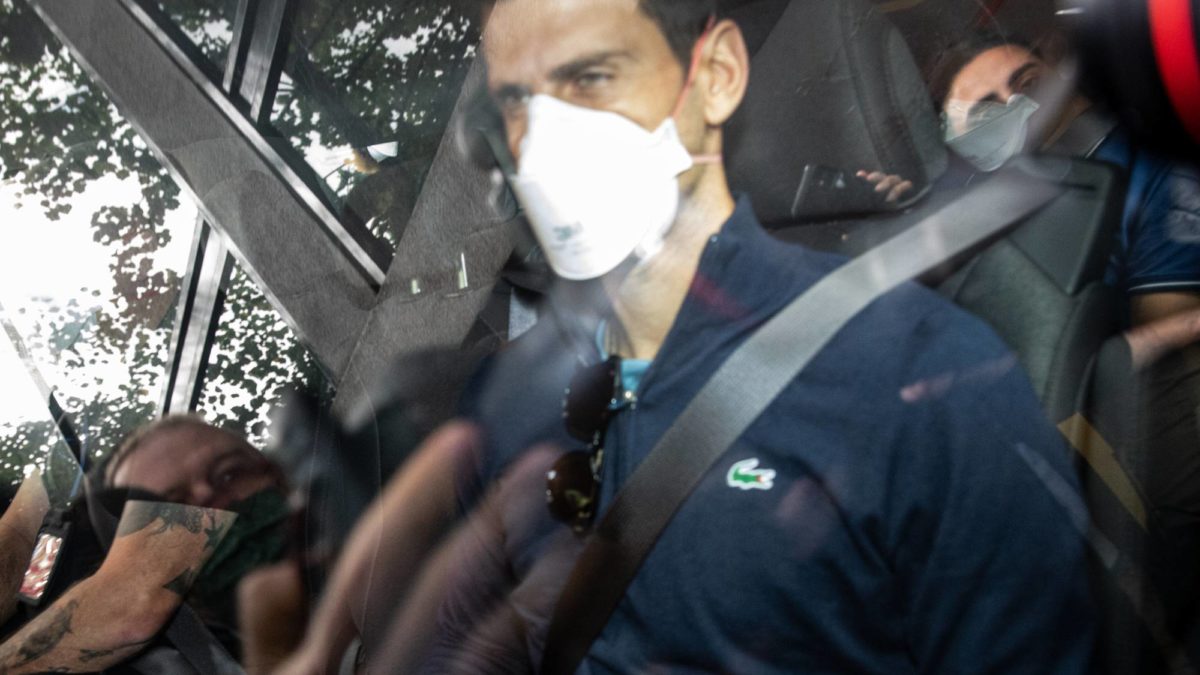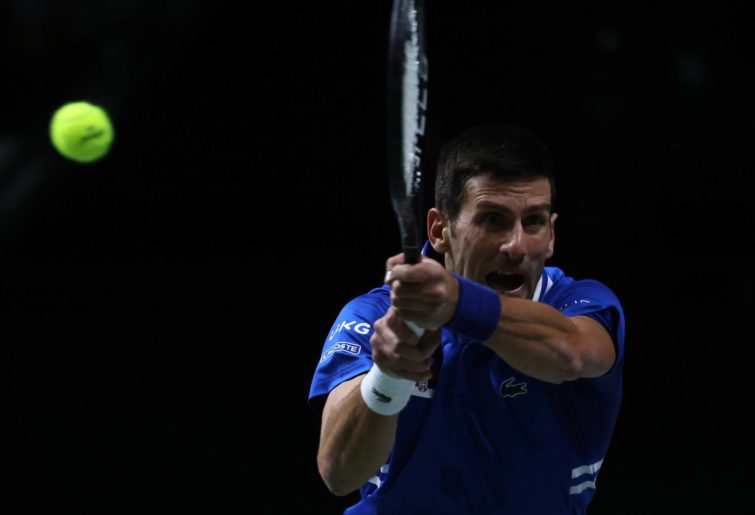
Novak Djokovic has admitted he would rather miss out on future Grand Slam titles than be forced to get vaccinated against Covid.
Djokovic, who was deported from Australia in shambolic circumstances last month, was asked in an interview with the BBC if he would sacrifice taking part in competitions such as Wimbledon and the French Open over his stance on the vaccine.
“Yes, that is the price that I’m willing to pay,” he said.
Djokovic, the world No.1 and 20-time Grand Slam winner was deported from Australia when the government cancelled his visa in a row over his vaccine status.
Djokovic said he had obtained a medical exemption to enter the country to play in the Australian Open because he had recently recovered from Covid-19.
Australia’s immigration minister Alex Hawke cancelled the 34-year-old’s visa, on the grounds that his presence could incite “civil unrest” and encourage anti-vaccine sentiment, a decision upheld after Djokovic appealed.
“I was never against vaccination but I’ve always supported the freedom to choose what you put in your body,” Djokovic told the BBC. He confirmed he had received vaccines as a child.
Djovic said he hoped vaccination requirements in certain tournaments changed and added he wanted to “play for many more years”.
But he also confirmed he was willing to forfeit the chance to win a record number of Grand Slam titles.
Asked why, Djokovic said: “Because the principles of decision making on my body are more important than any title or anything else. I’m trying to be in tune with my body as much as I possibly can.”

(Photo by Burak Akbulut/Anadolu Agency via Getty Images)
Djokovic said he had “always been a great student of wellness, wellbeing, health, nutrition.” He said he was “keeping [his] mind open” about the possibility of being vaccinated in the future, “because we are all trying to find collectively, a best possible solution to end Covid”.
“I was never against vaccination. I understand that globally, everyone is trying to put a big effort into handling this virus and seeing, hopefully, an end soon to this virus.”
Djokovic also gave his version on the sequence of events ahead of the Australian Open.
“I understand that there is a lot of criticism, and I understand that people come out with different theories on how lucky I was or how convenient it is,” he said of the timing of his positive result.
“But no-one is lucky and convenient of getting Covid. Millions of people have and are still struggling with Covid around the world. So I take this very seriously, I really don’t like someone thinking I’ve misused something or in my own favour, in order to, you know, get a positive PCR test and eventually go to Australia.
“I was really sad and disappointed with the way it all ended for me in Australia. It wasn’t easy.”
While his medical exemption request was made anonymously and accepted by two independent Australian panels, he was ultimately rejected because of an error on a separate travel declaration.
“Absolutely, the visa declaration error was not deliberately made,” Djokovic said. “It was accepted and confirmed by the Federal Court and the minister himself in the Ministry for Immigration in Australia.
“So actually, what people probably don’t know is that I was not deported from Australia on the basis that I was not vaccinated, or I broke any rules or that I made an error in my visa declaration. All of that was actually approved and validated by the Federal Court of Australia and the Minister for Immigration.
“The reason why I was deported from Australia was because the Minister for Immigration used his discretion to cancel my visa based on his perception that I might create some anti-vax sentiment in the country or in the city, which I completely disagree with.”
Djokovic said he understood the reaction in Australia and why the population was frustrated with the situation, but hinted he felt the situation was whipped up by newspapers.
“Ausralia has been through one one of the most severe lockdowns we have had sine the beginning of the pandemic,” Djokovic said.
“I can only imagine how hard it was for Australians and I sympathise and and emphathise with all the people and I understand there has been a lot of frustration from Australian people towards me and towards the entire situation and the way it was dealt with. I understand as well reading the newspapers you get certain conclusions.
“I would like to say I always follow the rule.
“I was ready not to go to Australia, as much as I love the country and always looked forward to going to the Australian summer and participate in the Australian Open.
“It was a very difficult decision for me because I understood that with the decision I made there were going to be consequences and I was ready.”